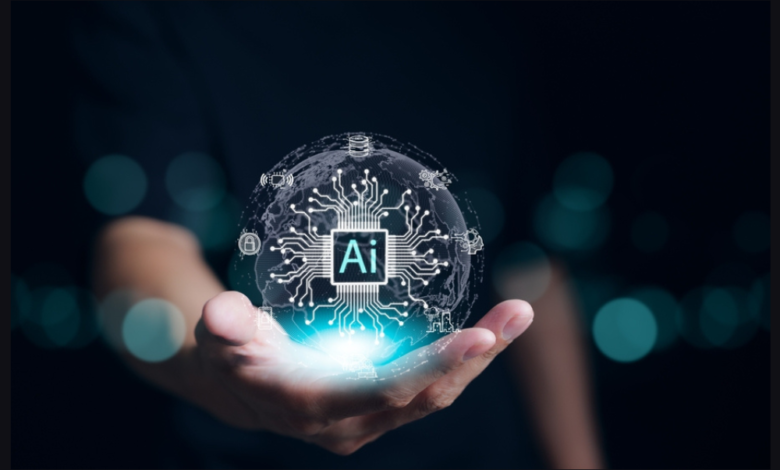The Future of Artificial Intelligence in Software Development

The world of software development is on the verge of a major change due to the extraordinary rise of artificial intelligence (AI). Artificial intelligence is influencing software development in both significant and minor ways. While many businesses strive to implement AI-enabled products, the promise for AI extends beyond feature development. Rather, AI will serve as the backbone for most, if not all, SaaS applications. Machine learning and AI models will enable SaaS solutions to continuously generate new efficiencies across a wide range of corporate activities. AI should be viewed as the cornerstone for a new method of development. Software delivery will become a utility. The hard work that imposed a high tax on incremental value will simply occur, and the backlog of high-value additions and innovation will be pushed into production. Humans will not be replaced. Rather, you will witness the full power of software creators unleashed.
What is Artificial Intelligence (AI)?
Before exploring the future of AI, it is important to understand what AI is. Artificial intelligence is the imitation of human intelligence processes by computers, particularly computer systems. This includes a wide range of abilities like learning, reasoning, problem solving, vision, and language comprehension, which AI achieves via a variety of approaches such as machine learning and deep learning.
Benefits of Using AI in Software Development?
AI is being increasingly incorporated into our daily lives, from healthcare to transportation. This gives up several options for software engineers to create intelligent systems that can make decisions, evaluate data, and even understand human emotions. The inclusion of AI-assisted software development has numerous benefits. It speeds up operations like code review and debugging, lowering the time necessary for project completion. AI can also improve software security by spotting flaws and recommending solutions. Furthermore, it helps predict and address faults, resulting in more reliable software. The integration of AI into software development provides various benefits, including:
- AI can help automate the creation of code snippets, saving developers time and lowering coding errors.
- AI-driven applications improve user experiences by analyzing behavior and preferences, resulting in more tailored and user-friendly software.
- AI automates repetitive activities, allowing developers to focus on innovative and hard areas of the project.
- By collecting and analyzing vast amounts of data, AI gives useful insights that help developers make educated decisions at all stages of the development process.
- Artificial intelligence enables flexible and adaptable software development by adapting to changing project requirements and scaling resources as needed.
Future of AI in Software Development:
As we look into the future of AI in software development, it becomes clear that this technology is more than just a fad but a vital engine of growth. In this article, we will look at the existing landscape, emerging trends, problems, and ethical considerations for AI in software development. Drawing on facts and studies, we will explore the potential of AI to reshape how software is imagined, built, and maintained, as well as how it will change developer’s roles in this new paradigm.
However, several major trends are expected to affect the future of AI in software development:
- AI-Driven Code Assistance:
As developers create code, AI will play an increasingly important role. Advanced code completion and code suggestion tools will become more prevalent, saving developers time and decreasing errors.
- AI-Powered Debugging:
Debugging tools will get smarter, with AI algorithms identifying root causes of problems and suggesting remedies, hence speeding up the debugging process.
- AI-Enhanced Testing:
AI will continue to improve software testing by automating test case generation and providing more comprehensive test coverage.
- AI in Design and User Experience:
AI will help designers create more user-friendly interfaces and predict user behavior, resulting in more personalized software experiences.
- AI-Enabled Continuous Integration/Continuous Deployment (CI/CD):
AI will improve CI/CD pipelines by predicting the impact of code changes and streamlining the deployment process.
- Natural Language Programming:
Developers will increasingly engage with AI systems using natural language, making it easier to explain coding needs and construct AI-generated subtitles.
- AI-Generated Documentation:
AI will generate code documentation and comments, making it easier to read and maintain.
Will AI Replace Software Engineers entirely?
AI is a powerful tool, but it cannot replace software developers due to limits in its software creation capabilities. AI is good at automating monotonous activities, but it lacks the creativity, problem-solving abilities, and thorough awareness of user demands that human software engineers have. When developing creative, user-centric software solutions, the human touch is essential. Software engineers contribute critical thinking, agility, and the ability to cooperate effectively, which AI has yet to match. AI development is centered on software developers and other individuals who are interested in solving problems that AI can answer.
Ethical Concerns of AI:
Using artificial intelligence (AI) capabilities provides organizations with exciting new opportunities, but it also brings ethical concerns to the forefront. AI systems learn from the data they are taught, which might perpetuate existing prejudices. Human selection of training data raises the possibility of bias, which must be properly checked.
To reduce prejudice in real-world applications, particularly those requiring regulatory compliance, ethics must be embedded into AI training processes. This is especially difficult with AI techniques like deep learning and generative adversarial networks (GANs), which lack explainability.
The opacity of AI algorithms presents issues in businesses such as finance, where legal regulations need transparency in decision-making. AI-driven judgments, such as credit refusals, may be difficult to explain because they are based on complicated correlations between large amounts of data.
The ethical issues of AI include various areas:
- Bias: It refers to unchecked biases in training data and human interference.
- Misuse: Risks associated with technologies such as deepfakes and phishing.
- Legal concerns: It includes AI-generated libel and copyright violations.
- Job Displacement: Concerns about the impact of AI on employment chances.
- Data privacy: It is particularly important in industries such as banking, healthcare, and law.
Businesses must emphasize ethical considerations while solving these difficulties in order to ensure that AI technologies are used responsibly and beneficially.
Conclusion:
AI has huge potential to shape the future of software development, offering better user experiences and higher software standards. As AI becomes more incorporated into software development processes, it is critical to address issues like bias, job displacement, and ethical implications. In software development at Hashlogics, AI is considered as a valuable asset in software development, and individuals and businesses who appreciate its importance will be well-equipped to drive innovation while preserving competitiveness in the dynamic software development market. The future looks bright for those that employ AI to produce software that is more intelligent, efficient, and user-friendly than ever before.



